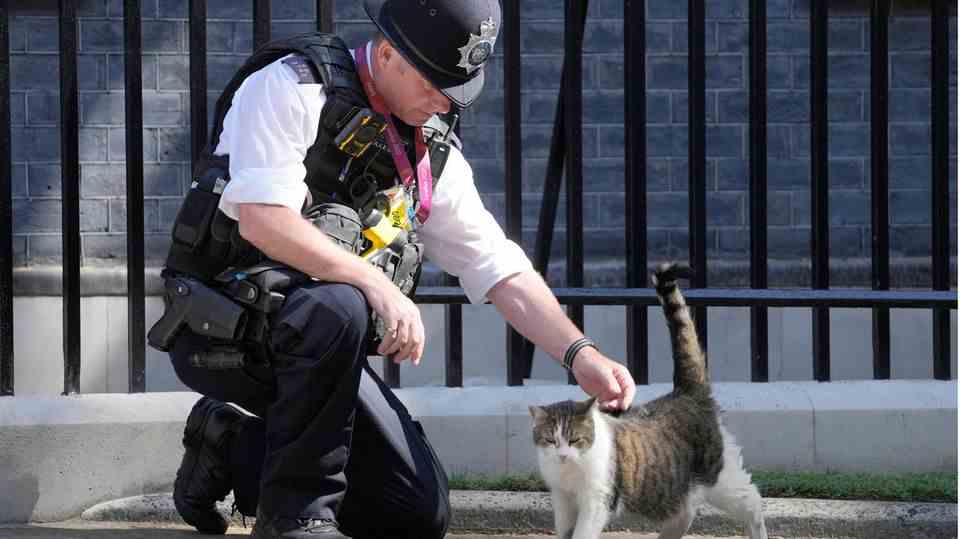Guinness Book of Records
“He’s a monster” – Fenrir the cat is the largest house cat in the world
A Savannah cat (icon image). The animals are crosses between domestic cats and African wild cats – hence the exotic appearance.
© Blickwinkel / Imago Images
The Guinness Book of World Records has named the world’s largest domestic cat. Savannah cat Fenrir lives in the USA and owes his extreme dimensions to his ancestors.
The largest currently living domestic cat in the world roams through the rooms of a doctor’s office in the USA and is – at least judging by its body dimensions – “a monster”. At least that’s how it is described by its owner Dr. William John Powers, an HIV specialist and general practitioner practicing in Michigan, USA.
Monster-wise, his pet’s height is 47.83 centimeters (18.83 inches) measured at shoulder height. Aside from the imposing appearance, his cat behaves like a common house cat, Powers, who lives in Farmington Hills, told a local website. “You can hold him in your arms like a baby.”
According to Guinness Book research, no other domestic cat in the world is larger. Although “domestic cat” is a little bit misleading. Because Fenrir is a Savannah cat. Although this breed is internationally recognized as a domestic cat, it is the result of crosses between domestic cats and African wild cats, so it can hardly be compared to our common house cats.
The Savannah cats got their exotic appearance from the serval, a medium-sized wild cat that lives in the savannahs of Africa – hence the name of the still young domestic cat breed.
Savannah cats are already extremely large
Fenrir the cat is a F2 generation Savannah. That means his grandfather was a serval. The grandfather named Kongo is said to have been a particularly large representative of his kind, the size was passed on to the offspring, according to reports on his record-breaking grandson.
Savannah cats are known internationally at the latest since pop star Justin Bieber bought two such animals. They look pretty with their spotted fur and actually resemble wild cats more than domestic cats.
However, there are many problems with keeping these demanding animals. In Germany, for example, a tomcat like Fenrir would have to be reported in several federal states and in some cases classified as a dangerous animal. Up to the F4 generation, these cats are subject to the species protection law in this country because of their wild ancestors. The higher the number, the “further away” the animal is from its Savannah ancestors, meaning the more domestic cat genes it has. In Germany, for example, anyone who wants to keep a Savannah cat of the first four generations needs a large enclosure with a high fence. The animals – including those from later generations – can jump up to two meters high.
Animal rights activists also complain that servals and domestic cats are sometimes mated under questionable conditions – and that this happens with animals that would not naturally produce common offspring.
All in all, the tomcat Fenrir, with his shoulder height of almost half a meter, is something special – but by no means an ordinary house cat.
Sources: Guinness World Records“Clickontroit“, Zooplus“Petbook.de“, Welttierschutz.org



